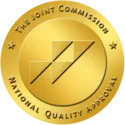Many people talk about substance abuse and addiction as if they mean the same thing. In reality, these terms represent different stages and impacts in a person’s relationship with drugs or alcohol. This distinction is especially relevant in clinical and recovery settings, where tailored treatment approaches are necessary for each stage.
At Eagle Creek Ranch Recovery, we work with men who experience both substance abuse and addiction. We help guide individuals and families toward the most effective care possible. The conversation about how to treat substance abuse and addiction is ongoing, and having clear definitions is essential.
Drug Abuse vs. Addiction: The Key Differences
The main difference between drug abuse and addiction comes down to control. With drug abuse, the person still has some ability to make choices about their substance use. With addiction, that control is largely gone.
Someone who abuses drugs might binge drink on weekends and get into trouble. But they could probably stop drinking for weeks if they face serious consequences, like potentially losing their job. Someone with an alcohol addiction might promise to quit drinking, but find themselves drinking again within days despite their best intentions.
Differences between abuse and addiction include:
| Aspect | Drug Abuse | Addiction |
| Control | Some control remains | Control is lost |
| Frequency | Periodic harmful use | Daily or compulsive use |
| Consequences | Problems occur, but may not be severe. | Severe, ongoing problems |
| Stopping | Can stop when facing serious consequences | Cannot stop despite wanting to |
| Brain changes | Minimal lasting changes | Significant brain rewiring |
Understanding the difference between abuse and addiction helps determine what type of treatment might be most effective to help the person. Substance abuse might respond to counseling or an intervention by loved ones, while addiction typically requires more intensive medical and psychological support.
Let me know if this won’t work within the site format.
What is Substance Abuse?
Substance abuse is using drugs or alcohol in ways that cause problems in a person’s life, work, relationships, or health. According to the National Institute on Drug Abuse (NIDA), substance abuse involves harmful patterns of use that lead to significant consequences but the person (usually) maintains some control over their behavior.
Substance abuse may best be summarized as repeatedly making poor choices with substances. A person might drink too much at parties and get into fights, or take more prescription pills than prescribed when they feel stressed. These behaviors cause problems, but they can usually recognize the issues and change their habits when consequences become serious enough.
Key signs of substance abuse include:
- Harmful patterns: Using substances in risky situations, like driving while intoxicated or mixing medications.
- Life problems: Experiencing relationship conflicts, work issues, or legal troubles related to substance use.
- Some control: Being able to stop or reduce use when faced with serious consequences.
- Occasional use: Using substances periodically, rather than daily or compulsively.
The 2022 National Survey on Drug Use and Health found that about 46.3 million Americans aged 12 years or older met criteria for having a substance use disorder. Many of these cases start as substance abuse before potentially progressing to addiction.
What is Addiction?
Addiction is a chronic brain disease where a person compulsively uses drugs or alcohol despite harmful consequences. Unlike substance abuse, addiction involves losing control over substance use entirely. The National Institute on Drug Abuse defines addiction as a disorder that changes how the brain functions, making it extremely difficult to stop using substances even when a person desperately wants to stop.
When a person is addicted, substances become the most important thing in their life. They’ll continue using even when it destroys relationships, costs you jobs, or damages your health. Their brain has been rewired to prioritize getting and using substances above everything else.
Addiction affects the brain’s reward system by flooding it with dopamine when a person uses substances. Over time, the brain stops producing normal amounts of dopamine naturally, so an addicted person needs substances just to feel okay. This creates a cycle where they use substances not to feel good, but to avoid feeling terrible.
Signs of addiction include:
- Compulsive use: Using substances even when you don’t want to or have decided to quit.
- Loss of control: Being unable to limit how much or how often you use substances.
- Tolerance: Needing more of a substance to achieve the same effects.
- Withdrawal: Experiencing physical or mental symptoms when you stop using.
- Continued use despite harm: Using substances even when they cause serious problems.
Research reveals that about 20.4 million Americans aged 12 years or older had a substance use disorder in 2022, with many cases involving severe addiction requiring intensive treatment. If you feel like you’re showing signs of addiction, reach out for help. The earlier a person receives treatment for addiction, the better the chance of avoiding significant long-term damage
Signs That Substance Use is Becoming Addiction
Substance abuse can gradually develop into addiction over time. Recognizing early warning signs can help you or someone you care about get help before the problem becomes more severe.
Physical signs of substance use becoming addiction include:
- Tolerance: Needing more of a substance to feel the same effects you used to get from smaller amounts
- Withdrawal: Feeling sick, anxious, or uncomfortable when you haven’t used substances for a while
- Physical changes: Noticeable weight loss or gain, poor hygiene, bloodshot eyes, or frequent illness
Behavioral warning signs include:
- Secretive behavior: Hiding how much you’re using or lying about your substance use
- Neglecting responsibilities: Missing work or school, ignoring family obligations, or not completing important tasks
- Financial problems: Spending money you can’t afford to spend on substances or stealing money/objects to pay for them
- Social changes: Hanging out with only people who use substances while avoiding people who don’t
Emotional warning signs include:
- Mood swings: Dramatic changes in mood, especially irritability when you can’t use substances
- Defensiveness: Getting angry when people ask about your substance use
- Loss of interest: No longer enjoying activities that used to be important to you
If you notice several of these signs, especially if they’re becoming worse over time, it might indicate that substance abuse is progressing toward addiction.
Treatment Approaches for Different Levels of Substance Abuse
Treatment for substance abuse and addiction varies based on severity. Someone with severe addiction typically needs more intensive care to fully heal.
This is the process of safely removing addictive substances from the body, and is often the first step in addiction treatment. Medical supervision during detox helps manage withdrawal symptoms and prevents dangerous complications.
Inpatient care is what people mean when they talk about “going to rehab.” It’s often considered necessary for severe addiction, especially when outpatient treatment hasn’t worked or when someone has serious medical or mental health complications. At Eagle Creek Ranch Recovery, our residential program provides 24-hour medical supervision and intensive therapy in a structured environment designed specifically to help men recovering from addiction.
This form of treatment works well for people with substance abuse or a less intense addiction, who also have a strong support system at home. This might include individual therapy, group counseling, or educational programs about substance use. The person continues living at home and maintains daily responsibilities while attending treatment sessions.
This form of treatment, commonly known as an IOP, provides more structure than regular outpatient care. A person might attend treatment several hours per day, several days per week, while still living at home. This option works for people who need more support than weekly therapy but don’t require residential care.
The most effective treatment plans often combine multiple approaches and change according to the person’s needs. Recovery from addiction is typically a long-term process, and relapse prevention planning is a necessary step to maintain sobriety while transitioning back to regular life.
Recover From Addiction at Eagle Creek Ranch Recovery
Understanding the difference between substance abuse and addiction can help in making informed decisions about treatment. Both conditions are treatable with appropriate care. Early intervention for substance abuse can prevent progression to addiction, while evidence-based treatment can help people recover from even severe addiction.
At Eagle Creek Ranch Recovery, we provide comprehensive treatment for men across the spectrum of substance use disorders. Our approach recognizes that each person’s relationship with substances is unique, and treatment plans are tailored accordingly.
If you recognize signs of substance abuse or addiction in yourself or someone you care about, contact us today to learn about your options. The sooner treatment begins, the better the chances for successful recovery

Clinical Director
Kendall Maloof is the clinical director at Eagle Creek Ranch Recovery. She is a licensed marriage and family therapist and has held multiple leadership roles before settling here at Eagle Creek Ranch Recovery. Kendall received her master’s degree in marriage and family therapy from the Chicago School of Professional Psychology in 2016. Her career in mental and behavioral health began in 2014 when she took up internships in both the nonprofit and for profit sectors. She interned at multiple reputable companies, such as The Living Success Center and 449 Recovery in California.
In 2019, Kendall became the clinical director of Sunsets Recovery for Woman, a dual diagnosis program in southern California. Kendall is a natural leader. She has an incredible ability to problem solve and stay calm in any situation. Kendall never fails to show up when she is needed, and her calm demeanor makes her team and clients feel at ease. Eagle Creek Ranch Recovery is proud to have Kendall as our clinical director.



